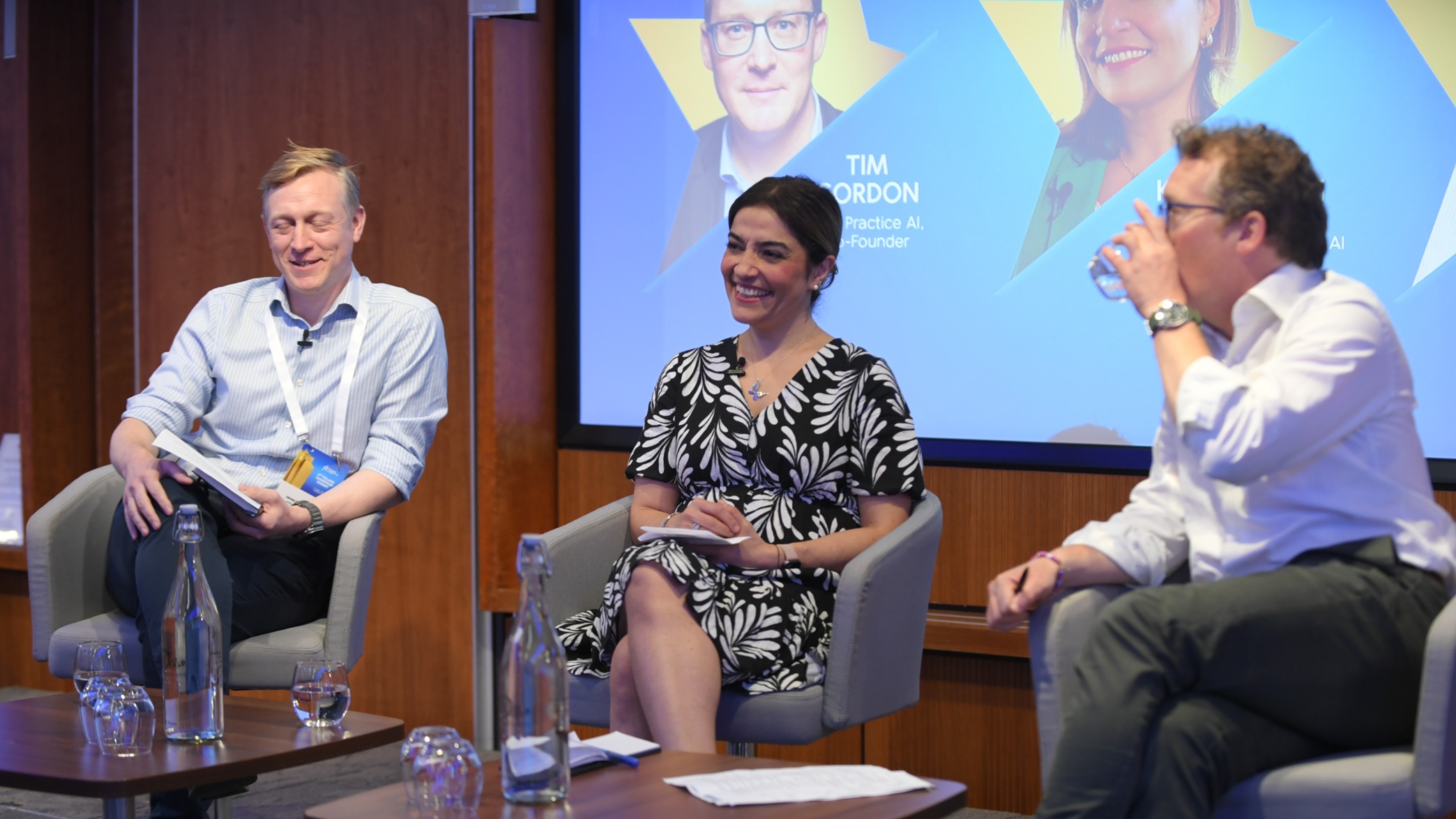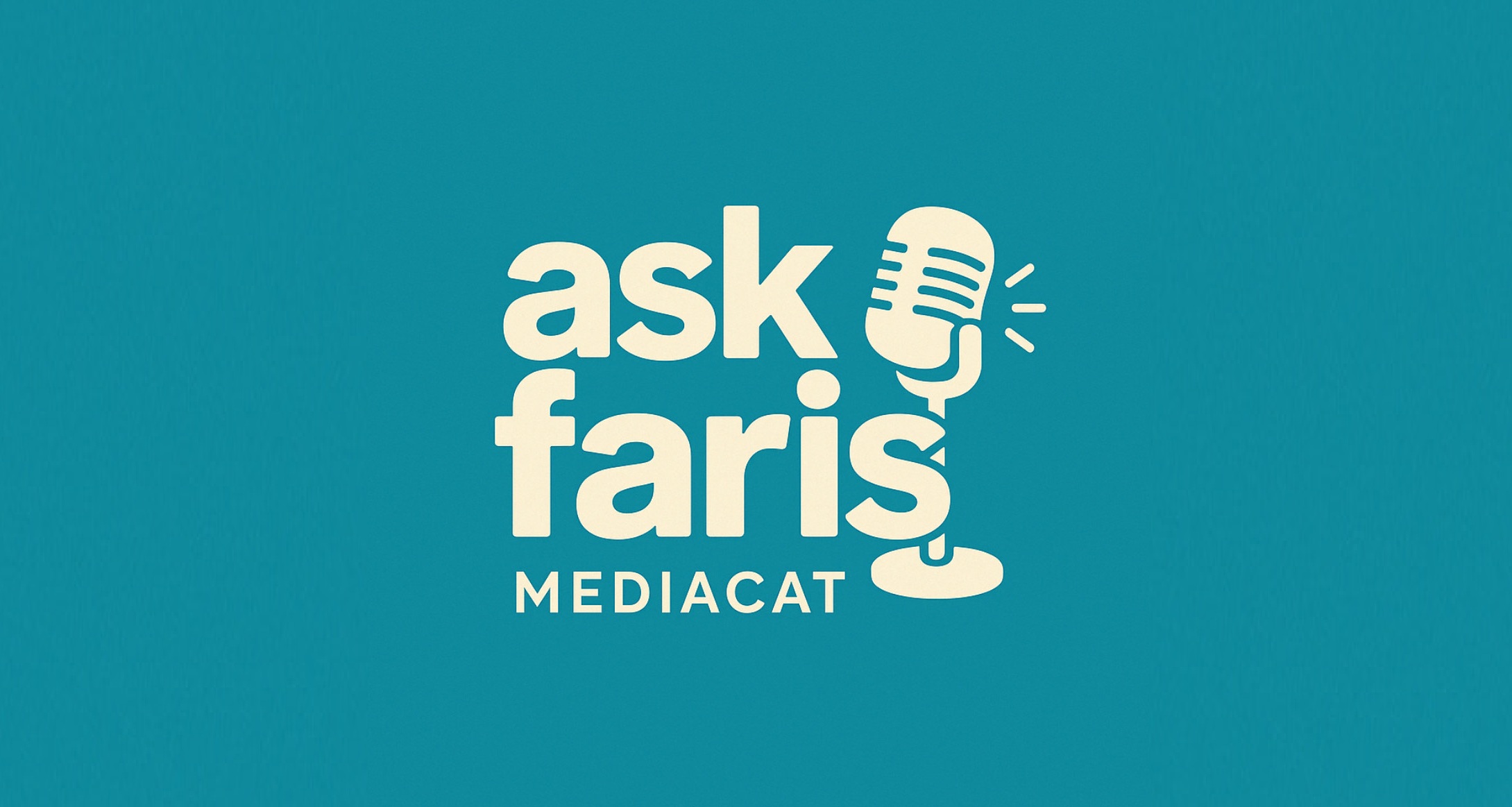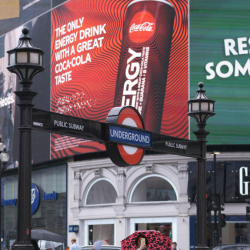Last year was rough for podcasting…
‘2023 is going to hurt’, Vulture warned in January, portending ‘more consolidations, layoffs, shuttered shows and studio closures’. By March, The New York Times and Vanity Fair declared the era of ‘dumb money’ dead. Soon, the four horsemen of the pod-pocalypse struck: mass layoffs, cancelled shows, ad shortfalls and an investor exodus signalling a close to the speculative rush that flooded the space in 2019. By year end, tech journalists had penned their obits: the golden age of podcasting is over. RIP, audio.
The industry did not die — rather, the medium was forced to grapple with its own adolescence. ‘It’s been the year podcasting grew up,’ said Steve Ackerman, EVP and Head of Global Podcasts at Sony Music Entertainment. ‘Podcasting this year had to face the real challenges of running a business.’ With these growing pains came a pressing need for fresh ad spend, well-leveraged partnerships and a strategic push into video and social to secure a foothold in the shifting media terrain.
Vox Media is embracing this reinvention. Earlier this month, the network inked its tenth podcast deal of the year with YouTube creator Kenny Beecham. The move is the latest in a strategy to diversify and scale Vox’s podcast portfolio into a multi-channel powerhouse. ‘Some of the biggest and most successful shows are shows distributed across many different platforms,’ remarked Ray Chao, SVP and GM of audio and digital video at Vox. ‘That’s creating a huge audience and advertising opportunity.’
Podcasting isn’t just stretching its legs — it’s walking in new directions
Over 170 million people have streamed video podcasts on Spotify, and YouTube is now America’s dominant platform for podcast listening and discovery. As podcasts become increasingly visual, publishers must adapt their offerings into watchable media that feels native to these platforms.
Small Ball delivers in-depth basketball analysis from NBA superfan, Kenny Beecham, whose YouTube channel boasts nearly 300,000 subscribers and videos regularly rack up five-figure views. The show joins Vox’s expanding slate of audio sports programming, which includes recent deals with NFL star Cam Heyward (Not Just Football) and athletes Sue Bird and Megan Rapinoe (A Touch More Podcast).
Vox’s podcast network is the eighth-largest in the U.S, whilst Beecham’s media company, Enjoy Basketball, spans five digital shows and over one million fans. Acquiring established shows like Small Ball not only enriches Vox’s podcast portfolio, but streamlines video development and audience building. YouTube in particular presents significant opportunities for sponsorship extensions and monetisable impressions.
Under this partnership, Vox assumes marketing, sales, and distribution for Small Ball, collaborating with Beecham on event extensions and cross-promotions with other Vox properties.
With live podcast ticket sales surging over 2000% since 2015, the in-person experience is ever more lucrative. Vox’s events infrastructure offers advertisers expansive touchpoints beyond traditional audio. Its flagship true-crime series Criminal is celebrating its 10th anniversary with a 13-city tour, demonstrating both an appetite for and the ability to translate audio IP into IRL engagement. At SXSW 2024, Vox’s podcast stage featured live tapings with a slew of celebrity guests, leveraging high-profile moments to magnify franchise reach.
Podcasts have evolved beyond audio entertainment into platforms actively shaping cultural discourse
Juggernaut The Joe Rogan Experience consistently tops podcast charts worldwide, with 15.2 million followers on Spotify. Launched on YouTube in 2009, Rogan’s formula — long-form interviews with guests across the political, scientific and cultural spectrum — helped pioneer the demand for long-form video podcasting. Just days ago, Rogan hosted former President Trump during the ongoing 2024 Presidential campaign. At the time of writing, the episode has amassed 33 million views on YouTube and is climbing rapidly.
Similarly, Vice President Kamala Harris appeared on Alex Cooper’s Call Her Daddy earlier this month as part of her campaign trail. The show secured a $60 million three-year deal with Spotify in 2021, where it rose to second most-listened-to-podcast globally behind Rogan. Cooper signed with SiriusXM this summer for $125 million — a strategic power move in building her expanding entertainment empire. Last year, she and film-producer husband, Matt Kaplan, launched Trending; a media company aimed at her massive Gen Z following.
These appearances haven’t been without backlash. Trump’s stints on bro-centric platforms like Rogan’s and Theo Von’s have sparked criticism for cosying up to the manosphere, while Harris’s selection of Call Her Daddy—billed as ‘the most-listened to podcast by women’—has been dismissed by detractors as a ‘soft choice’.
Concerns around journalistic integrity are not unfounded either. Podcasts often lack the rigorous questioning characteristic of traditional interviews. Nevertheless, as The New York Post observes: ‘What we’re witnessing in the growth of podcasts is a manifestation of the public’s frustration with a mainstream media that seeks to manipulate rather than inform — to dictate conclusions instead of allowing us to reach them on our own.’
This convergence of disillusioned audiences and podcast guests — in this instance, politicians seeking to cultivate relatability with key demographics — points to a profound shift in media consumption. In this context, podcasts re-emerge as a cultural force reminiscent of traditional radio, driven by the demand for authenticity, truth and connection.
A year on from peak turbulence, podcasting is not merely surviving; it’s undergoing a definitive metamorphosis
For companies like Vox, the future of podcasts lies in the IP franchises they can build around them. As advertisers adapt to the rise of video, perhaps the medium will shift further to what YouTube’s CPO, Johanna Voolich, calls an ‘eyes optional experience’. Last week, Harry Stebbings — who established credibility in the tech industry through his podcast, The Twenty Minute VC — raised a $400 million venture capital fund for early stage start-ups. This investment reveals podcasting’s potential as a springboard for ventures beyond audio, harnessing the networks and insights developed through interviews with industry leaders.
As AI continues to disrupt and integrate into myriad fields, podcasting is no exception. Google’s NotebookLM can generate lively ‘podcasts’ from the documents you feed it, summarising material and bantering back and forth. AI tools don’t just streamline workflows; they democratise them, enabling newcomers to leapfrog the usual learning curve and jump straight into content creation.
With $4.02 billion in projected ad revenue following a year in the morgue, it seems podcasting has discovered what any good true crime host already knows; sometimes, the most compelling stories start with death.
Featured image: Pixabay




















